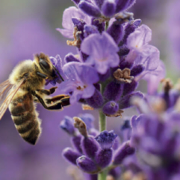An ever-ready immune system
The human body is equipped with a highly sophisticated system to protect us against the billions of germs we encounter every day. Hence why our immune system must wage a continuous fight against them. In particular, the air we breathe is a possible vehicle for pollution due to the enormous quantities of particles and microorganisms it contains, some of which are particularly dangerous for the body. The mucociliary system is the main defence mechanism located in the bronchial tubes, guaranteeing the purification of gases, vapours, smoke, particles and microorganisms.
For its part, even the intestine contributes to the immune system. It constitutes the main organ of the immune system insofar as it hosts about 70% of the immunocompetent cells. This concentration is the consequence of the need to protect the large intestinal surface, a potential entryway for harmful substances from the outside world.
Airway protection can be enhanced by the intake of certain plants, minerals and nutritional supplements that aid the strategic organisation of the immune system, helping to prevent infectious processes, such as lactoferrin, fermented papaya, echinacea, zinc.
Lactoferrin
This is a protein isolated in 1960 from cow’s milk and found in many human secretions: tears, saliva, nasal and bronchial mucus, intestinal secretions, seminal fluid, cervico-vaginal mucus and blood. Lactoferrin is able to bind iron, preventing the development of bacteria, fungi, parasites and viruses that need said element, in particular intestinal pathogens.
Lactoferrin performs an inhibiting action on infections because it encourages the growth of normal bacterial flora, which is not iron-dependent. It also performs a powerful inhibition action on many viruses. Ultimately it prevents the colonisation of the mucous membrane surfaces by bacteria, fungi, parasites and pathogenic viruses, preventing subsequent penetration in the host’s cells. Lactoferrin thus helps maintain a healthy intestinal flora, enhancing the barrier effect of the intestinal mucosa and increasing resistance to colonisation by potentially harmful germs.
Fermented papaya
The fresh fruit, harvested in selected soils, is made to ferment for a long period (10 months) at low temperatures with yeast. A preparation is thus obtained containing numerous components, including polyphenols and oligosaccharides having a powerful antioxidant and revitalising action on the entire body.
Fermented papaya also helps prevent the inflammatory and infectious processes of the airways, enhancing the activity of the other components to which it is associated.

 Specchiasol
Specchiasol Specchiasol
Specchiasol Specchiasol
Specchiasol Specchiasol
Specchiasol Specchiasol
Specchiasol



 Specchiasol
Specchiasol Specchiasol
Specchiasol